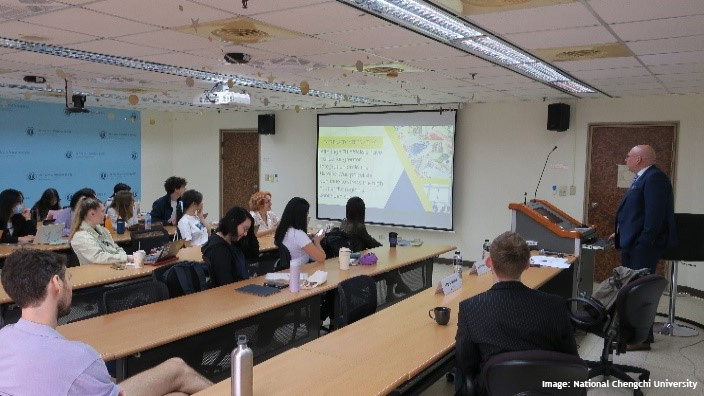Niklas Swanström gave lectures on the rise of populism and the threat to European integration at the National Chengchi University and the Taipei School of Economics and Political Science

May 3, 2024: Niklas Swanström, ISDP’s Executive Director, gave lectures on the rise of populism and the threat to European integration at two Taiwanese universities:
On April 23, the National Chengchi University (NCCU) invited Niklas Swanström. Agust Börjesson, Research Fellow at the Stockholm Taiwan Center, joined the lecture as a panelist.
In its simplest form, populism is a phenomenon whereby politicians play with the legitimate concerns of ordinary people by offering quick and easy solutions to complex problems. Rather than proposing fact-driven and data-based solutions, populists capture the public’s imagination through their simple and charismatic rhetoric and disinformation. Even more so, populist politicians point blame at the political elite and minorities for such problems, deepening social division.
Despite being known for its robust democratic institutions and culture, Europe has been experiencing increasing waves of populism amid times of crisis. In times of trouble, such as the Eurozone crisis, the migrant crisis of 2015, and the war in Ukraine, ordinary citizens feel the brunt of the problem and favor politicians who promise immediate answers. Furthermore, when tackling job loss, technocratic policies, and increased living costs, European populists tend to target the EU’s distant and opaque nature as the root of the problem. As a result, populists in Europe have been hindering and harming European integration in addition to eroding democratic institutions.